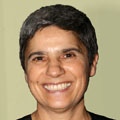Advisory Board and Editors Neuroscience

Genevieve M McArthur
The goal of my research is to understand what causes reading and language difficulties in children, how these difficulties can be identified and treated effectively, and how they relate to emotional health. I am a passionate advocate for the rapid translation of evidence-based knowledge into practice.
Over the last 25 years, I have held academic positions at the University of Western Australia, Curtin University, Oxford University, and Macquarie University. I am currently the Translational Director of the Macquarie University Centre of Reading, the Founding Director of the Macquarie University Reading Clinic, and Project Manager of MOTIf (Macquarie Online Test Interface; www.motif.org.au).

Rachel McMullan
Wellcome Trust Career Development Fellow using C. elegans genetics to understand how animals respond to infection. In particular the cross talk between nervous and immune systems that coordinates behavioural and cellular responses to infection. Member of the Genetics society and British Society for Cell Biology.

Guillermo Mendez-Rebolledo
Guillermo Mendez-Rebolledo received his Doctoral Degree in Physical Activity and Sport Science from Universidad Pablo de Olavide (2020), his Master in Health Sciences and Sport from Universidad Finis Terrae (2013) and his Bachelor of Physical Therapy from Universidad de Talca (2009). His research interest is Muscle Physiology and Motor Control with a special focus on Sports Medicine and Physiotherapy. Prof. Mendez-Rebolledo currently works at the Escuela de Kinesiología, University Santo Tomás (Chile).

Eva M Mezey
Dr. Mezey earned her M.D. from the Semmelweis University Medical School in Budapest, Hungary. She received her Ph.D. in neuroendocrinology from the Hungarian Academy of Sciences in Budapest. Dr. Mezey subsequently came to the NIH as a postdoctoral fellow in the Laboratory of Cell Biology, NIMH. She later returned to the NIH as a visiting scientist in NINDS. In 2004 she transferred to the NIDCR and heads the Adult Stem Cell Section to study the biology of bone marrow derived stem cells.

Francisco Javier Miana-Mena
I am a Veterinary Doctor since 2002. The results obtained in my Doctoral Thesis served as the beginning of a line of research on neurodegenerative diseases. Although I have participated in other research groups working within the field of oxidative stress and muscle bioengineering, my work has never moved away from the study of amyotrophic lateral sclerosis (ALS).
Since 2005 I work at the University of Zaragoza, within the Department of Pharmacology and Physiology, until today. In this time I have published around 30 articles in international scientific journals indexed in the JCR.
I have done research stays at the Pasteur Institute in Paris (France), at the Cochin Hospital in Paris (France) and the University of Granada (Spain).

Ross H Miller
Dr. Miller is an Associate Professor in the Department of Kinesiology at the University of Maryland (College Park, MD, USA). His research focuses on the mechanics and energetics of human locomotion in health and pathology, with an emphasis on causes and prevention of knee osteoarthritis.

Daniel Mirman
Dan is a Senior Lecturer in Psychology at the University of Edinburgh, UK. His research investigates the neurobiology of language processing and language disorders using behavioural and eye-tracking experiments, neuroimaging, and computational modeling methods. His primary focus areas are the organisation of semantic knowledge and the functional neuroanatomy of spoken language.

Thimios A Mitsiadis
Professor of Oral Biology in the Medical Faculty at the University of Zurich, Switzerland since 2006. Research in the fields of stem cells, genetics, molecular and experimental biology related to orofacial developmental and regeneration processes.
DDS degree from the Dental Faculty of the Kapodistrion University of Athens (Greece), Master degree for Immunology, Genetics and Differentiation, and PhD in Developmental Biology from the University of Lyon (France). Postdoctoral studies at the University of Helsinki (Finland), Karolinksa Nobel Institute (Stockholm, Sweden) and Yale University (USA). Previously Professor at the Mediterranean University (Marseilles, France), Visiting Professor at the Ecole Normale Superieure of Lyon (France), Clinical Senior Lecturer at King's College London (UK), Visiting Professor at the Polytechnic University of Marche (Ancona, Italy), Visiting Professor at the Second University of Napoli (Napoli, Italy). Chief-Editor of the “Frontiers of Craniofacial Biology and Dental Research”, Associate Editor of “Stem Cell Research”, Scientific Editor of “European Cells & Materials”, and part of the editorial board in additional 8 scientific journals. More than 110 original articles in journals such as “Journal of Cell Biology”, “Development”, “Developmental Biology”, “Nature Genetics”, “Science Signaling”, “Scientific Reports”, “Frontiers in Physiology” and more than 200 keynote and invited lectures.

Paula I. Moreira
Paula I. Moreira is Assistant Professor at the Faculty of Medicine and Principal Investigator at the Center for Neuroscience and Cell Biology, University of Coimbra. Moreira published more than 100 scientific peer-reviewed articles and she is on the editorial board of over 10 journals. Paula Moreira won the Stimulus to Research prize, in 2003, supported by the Calouste Gulbenkian Foundation and, the L’Oreal for Women in Science, in 2008, supported by L'Oreal Portugal/UNESCO/ FCT.

G Lorimer Moseley
Professor of Clinical Neurosciences & Foundation Chair in Physiotherapy, Director of Innovation in Implementation and Clinical Translation (IIMPACT) Research Collaboration at the University of South Australia; Fellow of the Australian Academy of Health & Medical Science; Hon Fellow, Faculty of Pain Medicine, Australia New Zealand College of Anaesthetists; Fellow, Australian College of Physiotherapists & Honoured Member, Australian Physiotherapy Association; Principal Research Fellow, National Health & Medical Research Council of Australia.
Shane T Mueller
Associate Professor in Applied Cognitive Science, Cognitive Modeling, and Human Factors. Studies Memory, Decision making, and knowledge representation. Developer of PEBL, the Psychology Experiment Building Language.

Robin M. Murray
Professor Sir Robin Murray is Professor of Psychiatric Research, Institute of Psychiatry, King's College London.
Honorary Consultant, South London and Maudsley NHS Foundation Trust.
Past President of the European Psychiatric Association.
Fellow of the Royal Society (elected 2010) and also a Fellow of the Royal College of Psychiatrists.
Co-editor-in-chief of Psychological Medicine.
In 1987, he and Shon Lewis were among the first to suggest that schizophrenia might in part be a neurodevelopmental disorder.
Murray is ranked as one of the most influential researchers in Psychiatry by Thomson Reuters' Science Watch and 3rd in Schizophrenia Research.
Robin Murray was the first to demonstrate that prolonged heavy abuse of cannabis can contribute to the onset of psychosis, and that starting early before 15 years and using high potency cannabis particularly increase the risk.
Murray was knighted in the 2011 New Year Honours for his services to medicine.

